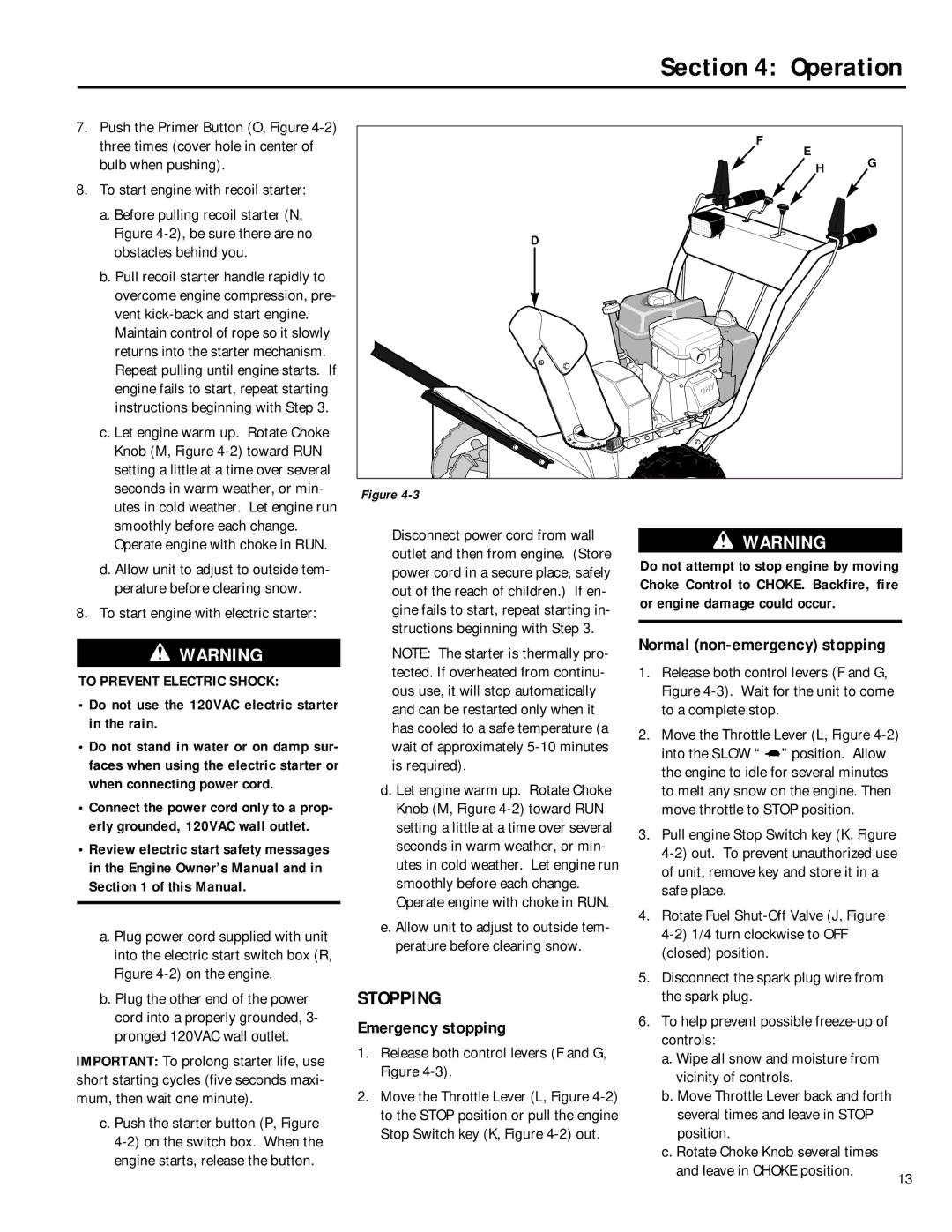42051, 42052 specifications
Troy-Bilt has long been a trusted name in outdoor power equipment, and the models 42051 and 42052 continue this tradition with their robust features and reliable performance. Designed for residential lawn care and landscaping tasks, these models are primarily known for their powerful engine, ease of use, and innovative technology that cater to both novice and experienced users.At the heart of the Troy-Bilt 42051 and 42052 is a reliable 420cc engine that delivers exceptional power for tackling various yard tasks, whether it's mowing, mulching, or bagging. The engine’s design emphasizes efficiency and ease of starting, ensuring that users can get right to work without any hassle. This engine has been engineered to minimize vibrations, which adds to the overall comfort during prolonged use.
One standout feature of both models is their adjustable cutting height. With multiple positions, users can easily customize the cutting height to suit their lawn's needs, giving them the versatility to achieve the perfect cut no matter the grass type or terrain.
Equipped with a heavy-duty steel deck, the 42051 and 42052 are designed for durability and longevity. This robust construction not only withstands rough conditions and impacts but also facilitates a smooth cutting experience, ensuring consistent results with each pass.
Another notable technology found in these mowers is the TriAction cutting system. This innovative design combines a specially designed blade with a rake that lifts grass for an even, clean cut. The system enhances bagging capability by ensuring that more clippings are efficiently collected, keeping lawns tidy and reducing the need for additional clean-up.
Both models also feature a rear bagging attachment, making it easier to collect clippings and debris as you mow. This capability is particularly advantageous for those looking to maintain a neat and well-kept lawn without the mess that often accompanies traditional mowing.
Moreover, the user-friendly controls make these mowers easy to operate. With intuitive levers and simple starting mechanisms, even those who are new to lawn care can gain confidence quickly.
Overall, the Troy-Bilt 42051 and 42052 embody the brand’s commitment to quality, performance, and user satisfaction, making them excellent choices for homeowners seeking a reliable solution for their lawn care needs. Whether tackling vast yards or smaller spaces, these mowers demonstrate power, innovation, and ease of use, fulfilling the diverse requirements of modern landscaping.

